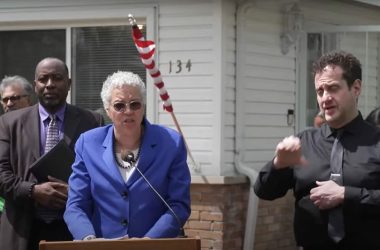New York, NY (PRWEB) August 19, 2008 — If reading were an Olympic sport, it would be the women holding all the gold medals and world records – not the men. In fact, the women are not just passing their male counterparts when it comes to reading, they are lapping them around the track.
"The Olympic games serve as an apt metaphor and occur at an appropriate time to remind the nation’s educators and parents that we need to acknowledge this widespread problem, and work harder to engage boys in reading," said noted children’s author Jon Scieszka, who was recently named National Ambassador for Young People’s Literature by the Library of Congress.
Scieszka points to staggering statistics underlying the boys reading crisis:
• Boys have lagged behind girls on reading tests in every age group for the last 30 years, according to the U.S. Department of Education;
• Eighth grade boys are 50 percent more likely to be held back than girls;
• Two-thirds of special education students in high school are boys;
• Overall college enrollment is higher for girls than boys.
Scieszka said that it’s pretty clear that a boy’s vision of the perfect lazy summer day won’t include reading under a shade tree. Experts are starting to make progress researching the roots of this decline. Why has this largely invisible crisis happened?
One of the central problems is that boys tune out when the subject matter doesn’t resonate with them.
"Boys have trouble reading because they don’t get to read for a purpose that makes any sense to them," Scieszka said. "So they turn off to all of reading."
He noted that boys often have trouble reading for other reasons:
• Biologically, boys are slower to develop than girls and often struggle with reading and writing skills early on;
• The action-oriented, competitive learning style of many boys works against them when learning to read and write;
• As a society, we teach boys to suppress feelings. Boys often don’t feel comfortable exploring the emotions and feelings found in fiction;
• Boys don’t have enough positive male role models for literacy. Because the majority of adults involved in kids’ reading are women, boys might not see reading as a masculine activity.
Scieszka, who recently partnered with the education publisher Pearson, is bringing his expertise into U.S. classrooms as an author of the new Reading Street elementary school curriculum as well as the Prentice Hall Literature programs for middle and high school. He said, "As a society we need to make more of an effort to connect boys with many different kinds of reading – both at home and at school."
He added, "If we can expand the notion of what reading is, we’ll have a better chance of inspiring boys to want to be readers. This means broadening our definition of reading to include boy-friendly nonfiction, humor, sports, comics, graphic novels, action-adventure, magazines, websites, and newspapers. Boys need to know that these materials count as reading."
Scieszka offers a simple suggestion for engaging boys to read.
"We can help boys become readers by giving them a reason to want to become readers," he said. "This approach opens the door and the mind. Once a boy starts reading, he will be more receptive to many other types of reading over his lifetime."
About Jon Scieszka – Jon Scieszka was a teacher for ten years in New York City Public Schools, drawing inspiration from his students to create award-winning bestsellers such as "The Stinky Cheese Man, which won the Caldecott Honor Medal, "The True Story of the Three Little Pigs," and, most recently, the popular "Trucktown" Series aimed mainly at boys (but for girls too!) who are just learning to read. He credits his experience in the classroom with teaching him the respect for kids’ intelligence and humor that he tries to appeal to in all of his writings for them. To bring his commitment to reading directly into schools around the country, Scieszka recently joined the educational publisher Pearson as an author of the Reading Street elementary curriculum, and the Prentice Hall middle and high school literature programs. Scieszka is the founder of GUYS READ, a nonprofit literacy initiative for boys to draw attention to the issues around boys and reading. In 2008, he was named the first U.S. National Ambassador for Young People’s Literature by the Library of Congress, a role that provides him another platform to share his passion and concern for inspiring children to read. For more on boys and reading, visit Scieszka’s web site, www.guysread.com.
About Pearson – Pearson (NYSE:PSO), the global leader in education and education technology, reaches and engages today’s digital natives with effective and personalized learning, as well as dedicated professional development for their teachers. Pearson’s research-based Reading Street elementary program ranked was the #1 reading curriculum in the nation for 2007. Pearson’s commitment to education is demonstrated in the company’s investment in innovative print and digital education materials for preK through college, student information systems and learning management systems, teacher professional development, career certification programs, and testing and assessment products that set the standard for the industry. The company’s respected brands include Scott Foresman, Prentice Hall, Addison Wesley, Benjamin Cummings, Educational Measurement, Educational Assessment, SuccessNet, MyLabs, PowerSchool, SuccessMaker, and many others. Pearson’s comprehensive offerings help inform targeted instruction and intervention so that success is within reach of every student at every level of education. Pearson’s commitment to education for all is supported by the global philanthropic initiatives of the Pearson Foundation. Pearson’s other primary businesses include the Financial Times Group and the Penguin Group. For more information, go to www.pearson.com.








